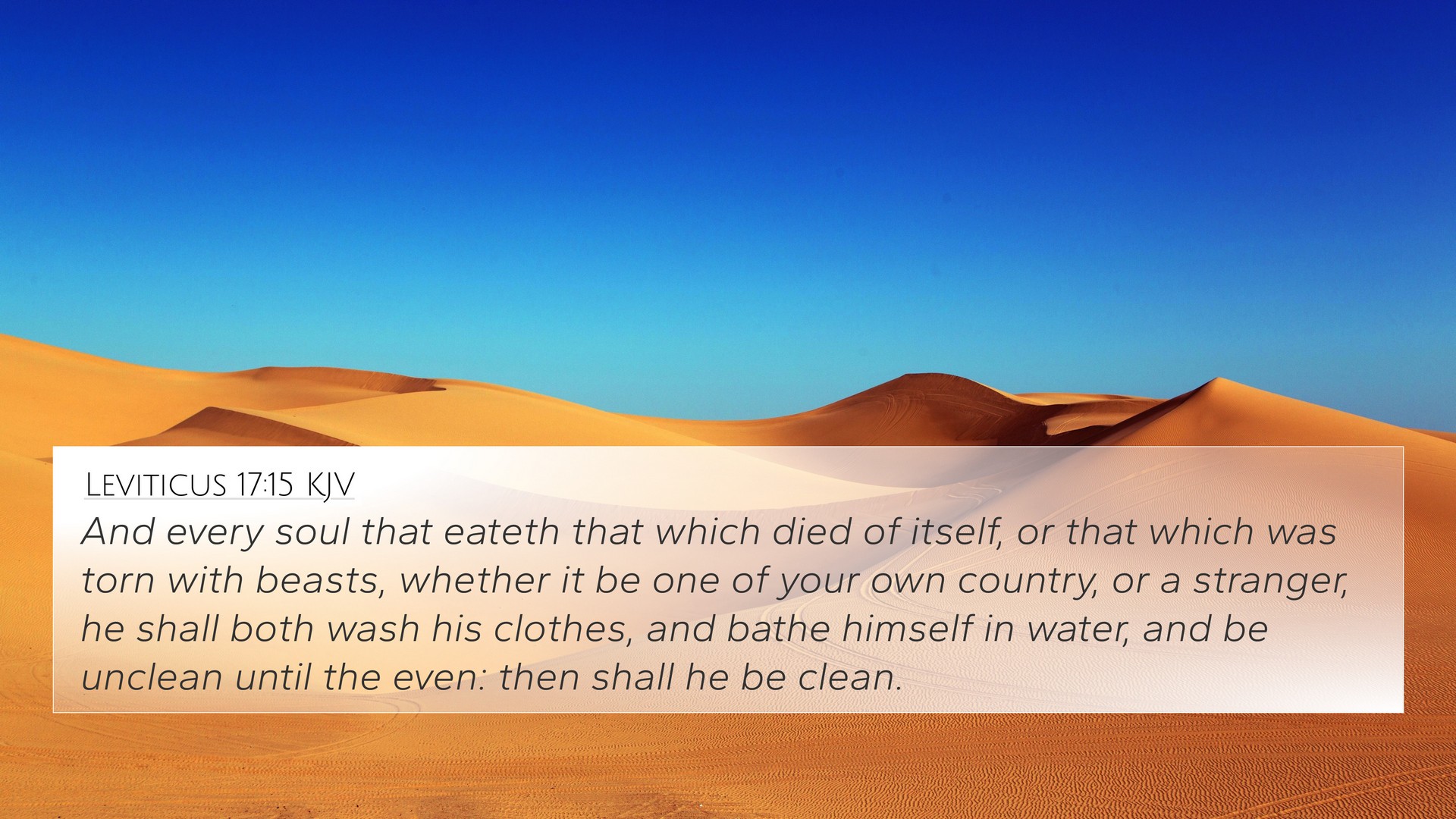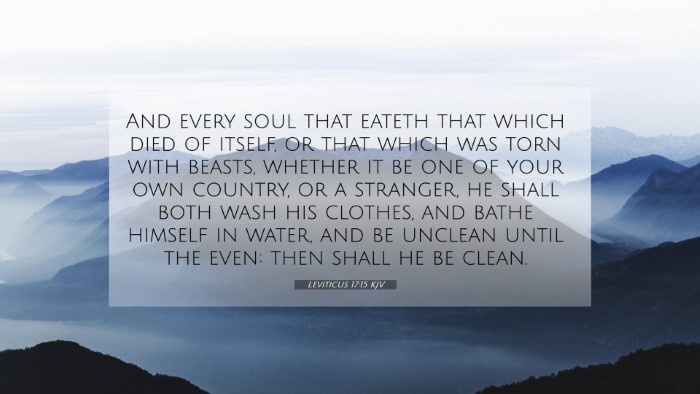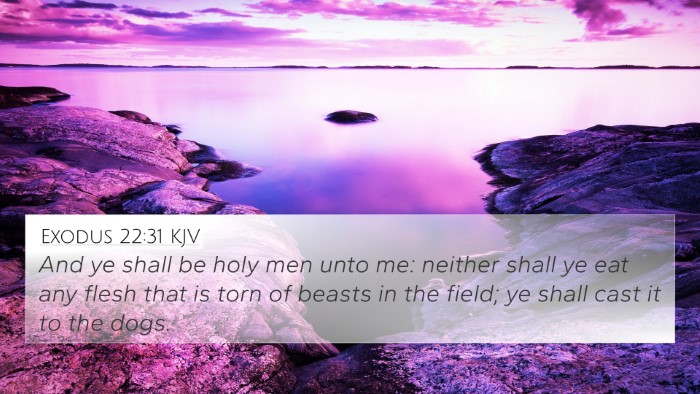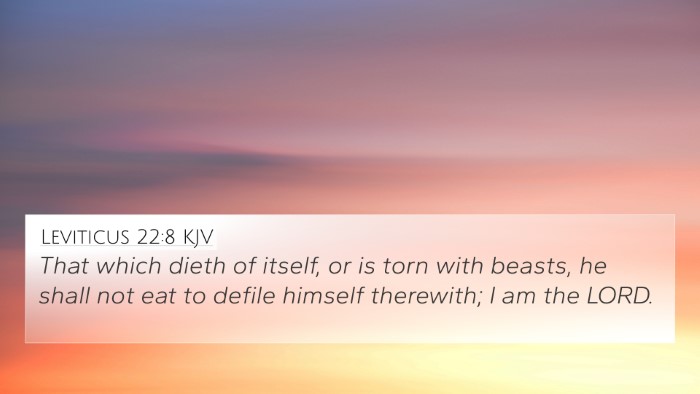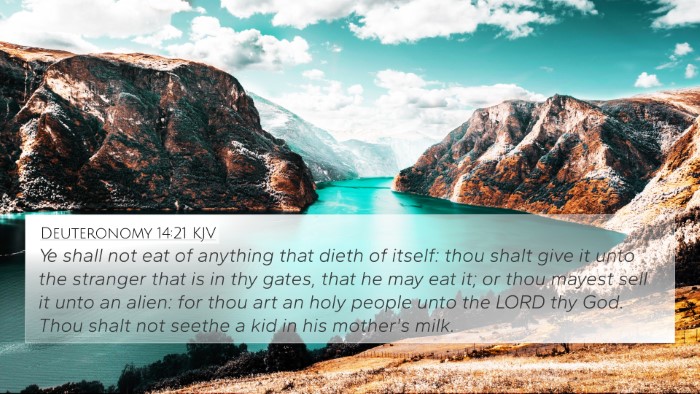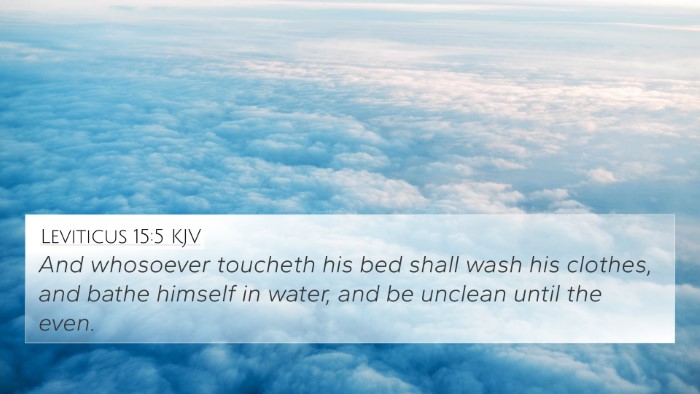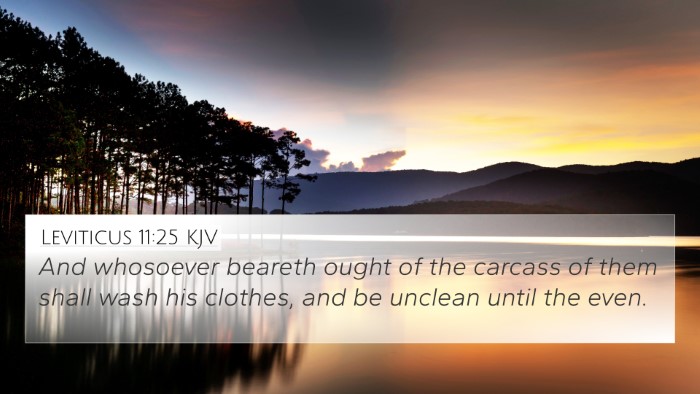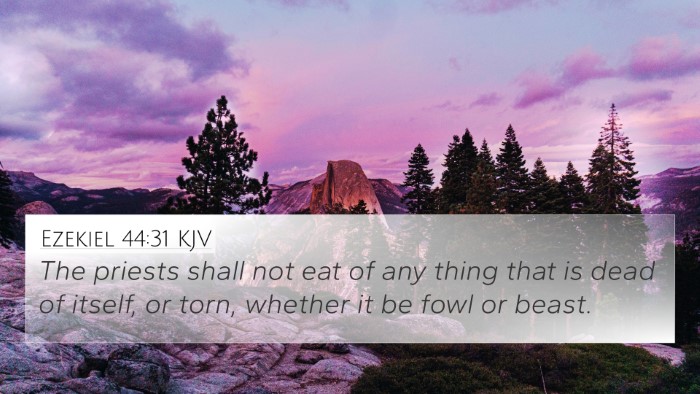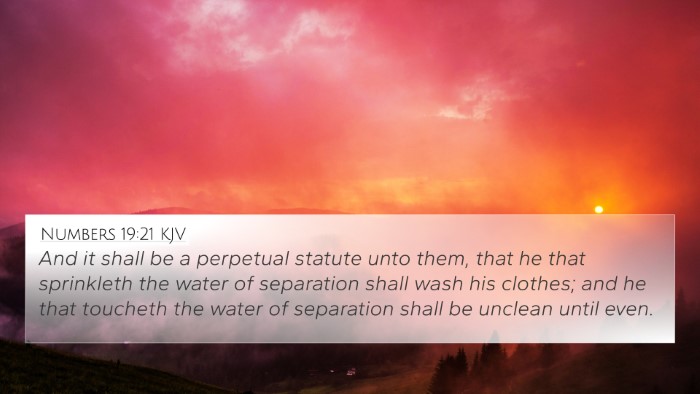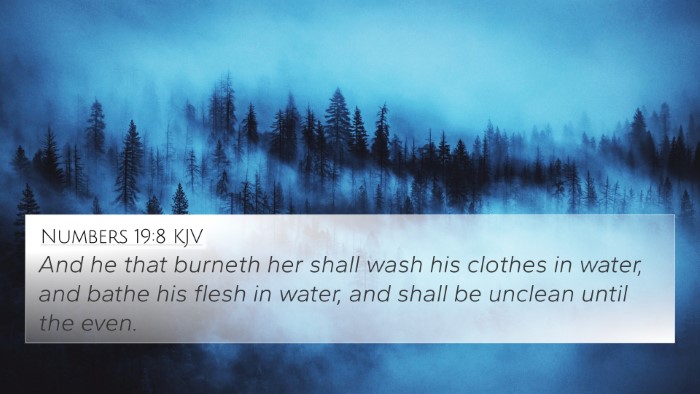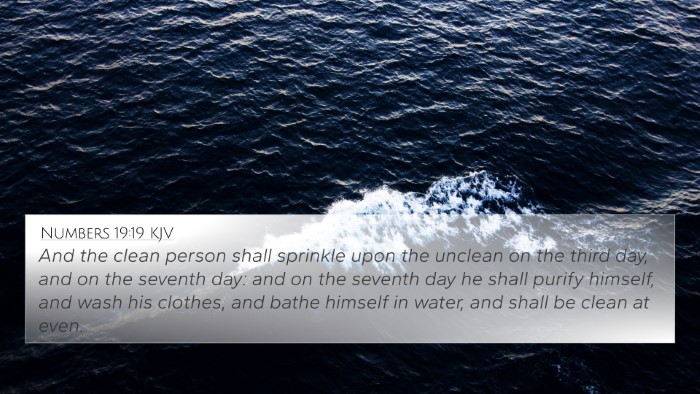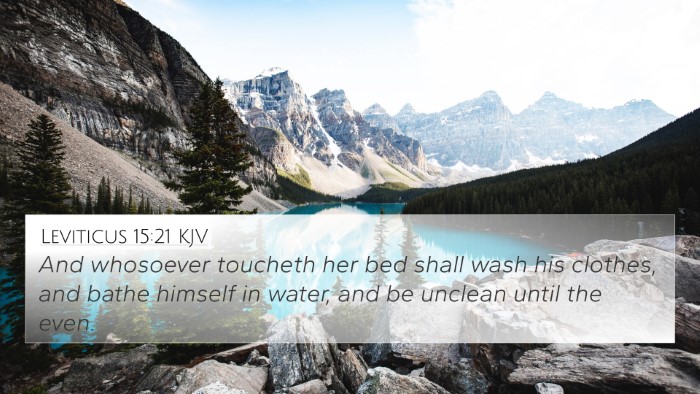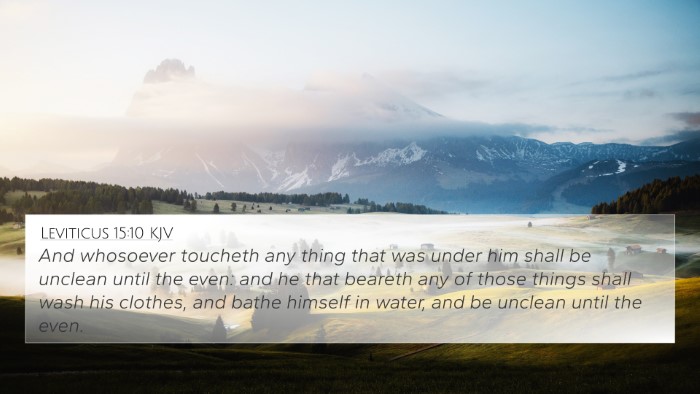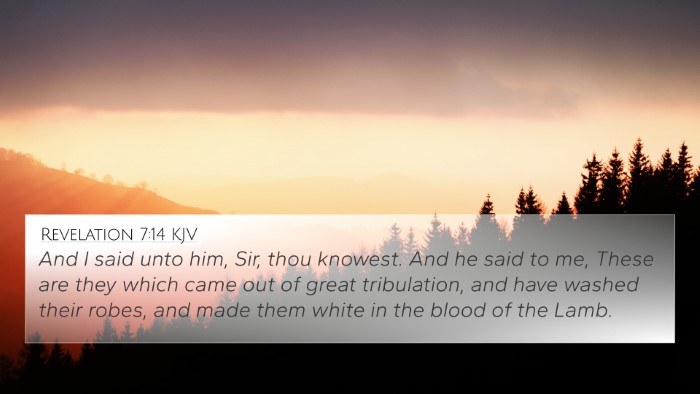Understanding Leviticus 17:15
Verse: "And every soul that eateth that which died of itself, or that which was torn with beasts, whether it be one of your own country, or a stranger, he shall both wash his clothes, and bathe himself in water, and be unclean until the even: then shall he be clean." (Leviticus 17:15)
Summary and Meaning
This verse addresses the dietary laws given to the Israelites, particularly concerning the consumption of animals that died of natural causes or were killed by wild beasts. It reflects the broader themes of cleanliness and holiness that permeate the Levitical laws.
Insights from Commentaries
-
Matthew Henry Commentary:
Matthew Henry emphasizes the importance of distinguishing between clean and unclean animals, noting that consuming those that died naturally or were killed by beasts would make a person unclean. He points out that this served to instill a sense of holiness among the Israelites.
-
Albert Barnes Commentary:
Albert Barnes elaborates on the significance of the washing and bathing after coming into contact with unclean animals. He highlights that these laws were to promote a lifestyle of purity, both physically and spiritually, reinforcing the covenant relationship between God and His people.
-
Adam Clarke Commentary:
Adam Clarke provides a historical context for these dietary restrictions, linking them to the cultural practices of surrounding nations. He suggests that these laws were part of a divine strategy to keep Israel distinct and separate from other nations, thereby protecting their spiritual integrity.
Thematic Connections
The verse highlights various themes, particularly purity, holiness, and the distinction between God’s people and other nations. These themes resonate throughout Scripture and can be linked to various other biblical texts.
Cross-References
The following verses create a framework of related scripture that further elucidate Leviticus 17:15:
- Exodus 22:31: “And ye shall be holy men unto me... And ye shall not eat any flesh that is torn of beasts in the field.”
- Leviticus 11:4: “Nevertheless these shall ye not eat of them that chew the cud, or of them that divide the cloven hoof.”
- Deuteronomy 14:21: “Ye shall not eat of any thing that dieth of itself: thou shalt give it unto the stranger that is in thy gates, that he may eat it.”
- Isaiah 66:17: “They that sanctify themselves, and purify themselves in the gardens, behind one tree in the mist...”
- Ezekiel 4:14: “Then said I, Ah Lord God! behold, my soul hath not been polluted; for from my youth up even till now have I not eaten of that which dieth of itself.”
- Mark 7:19: “Because it entereth not into his heart, but into the belly, and goeth out at the draught?” (This verse connects to the New Testament clarification of dietary laws.)
- Hebrews 9:13-14: “For if the blood of bulls and of goats, and the ashes of an heifer sprinkling the unclean, sanctifieth to the purifying of the flesh...”
Inter-Biblical Dialogue
The connections between Leviticus 17:15 and other scriptures illustrate a comprehensive theme throughout the Bible regarding sanctification and holiness. The laws given in Leviticus are foundational for understanding the sacrificial system and its fulfillment in Christ. This reflects the ongoing dialogue within scripture that connects the Old and New Testaments.
Comparative Analysis
By examining the dietary laws in Leviticus alongside New Testament teachings, we observe an evolution of understanding regarding law and grace. The dietary restrictions were not merely cultural but served to illustrate deeper spiritual truths about contamination and purity. In the New Testament, Jesus’ clarifications indicate a shift from strict dietary laws to an emphasis on inner purity and moral cleanliness.
Practical Applications
This verse, while steeped in the context of Israelite law, offers modern readers insights into the nature of godliness and holiness. As believers today, the call to holiness remains relevant, though it takes a different form through the teachings of Jesus and the New Covenant.
Conclusion
Understanding Leviticus 17:15 requires considering its historical context, its intended audience, and its implications for contemporary faith. Through comparative Bible verse analysis and thematic Bible verse connections, we begin to see the unfolding story of redemption that the Bible presents.
